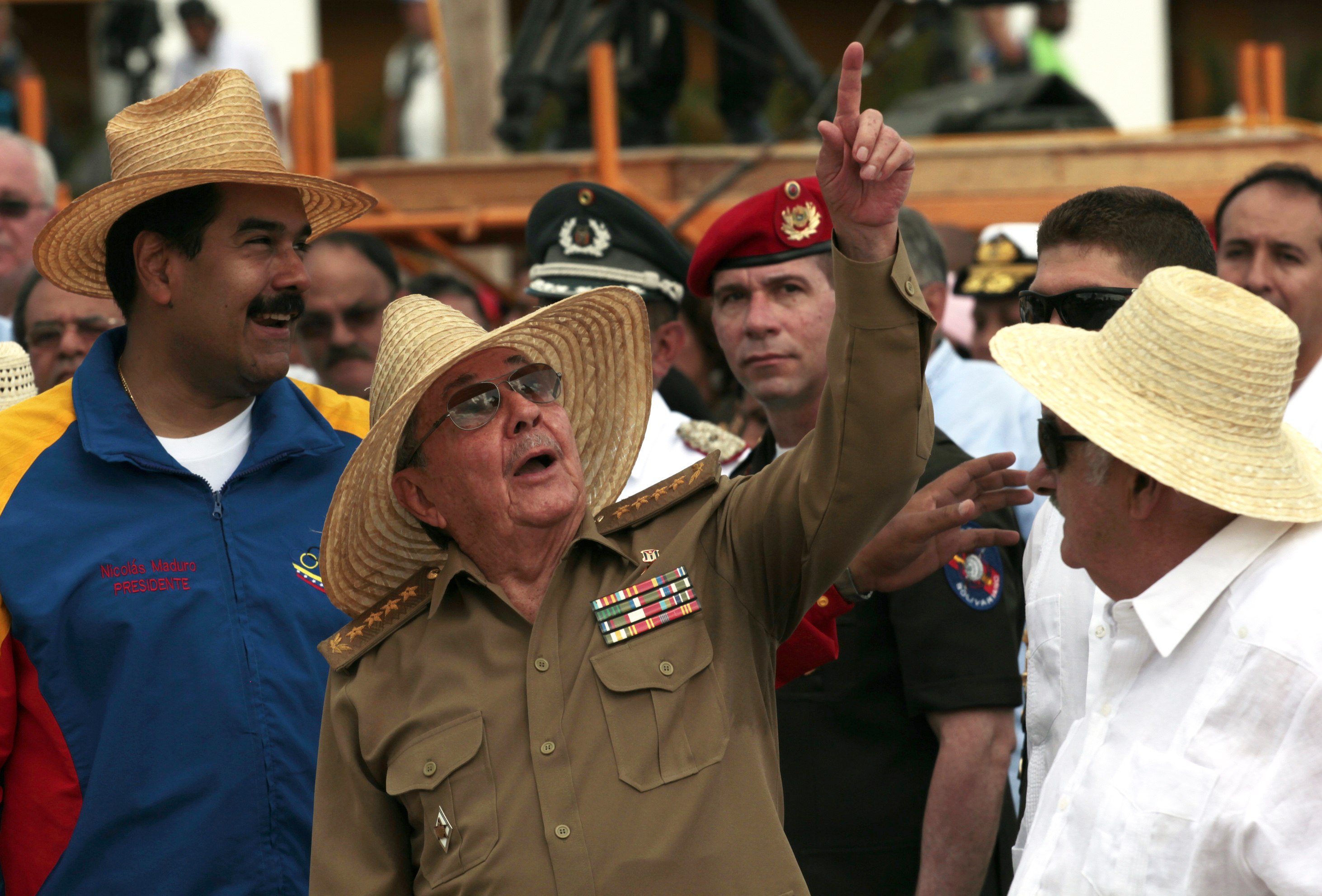
Cuba’s President Raul Castro with Venezuela’s President Nicolas Maduro (L) and Uruguay’s President Jose Mujica (R) during an event marking the 1953 assault on the Moncada military barracks in Santiago de Cuba July 26, 2013.
——
There is growing evidence that Nicolás Maduro’s gamble of creating a constituent assembly has paid off. The opposition is weak and divided, and the armed forces are making unknown riches from controlling the distribution of food and medicines, having little interest in changing the status quo. With many unwanted troublemakers migrating to Colombia, Brazil, the United States, Argentina and Spain, and violence against protesters continuing unabated, the days of mass protests are unlikely to continue for long. Finally, with Moscow and Beijing providing solid economic support, and Havana, La Paz and Managua helping Caracas avoid diplomatic isolation at the Organization of American States (OAS), the most likely scenario is the consolidation of an authoritarian chavista regime.
What will Venezuela look like? Some commentators have pointed to the world’s most extreme case and predicted a regime like in North Korea. Yet bringing up the regime in Pyongyang is unhelpful because of a series of characteristics that make the country unique — among others, its complete social isolation and religious cult, which make the country not only a dictatorship, but essentially a sect. Even the Soviet Union during its heyday never reached — nor desired — anything comparable to life in contemporary North Korea, and even the most ardent Maduro supporter is unlikely to use Kim Jong-un as a model.
The case of Cuba is more interesting, largely because the regime in Havana plays an enormously important role in Venezuela since Hugo Chávez became president in 1999. What is more, there is evidence that Venezuela’s political system will increasingly look like that of Cuba. Key members of Venezuela’s intelligence agency SEBIN have been trained in Havana, helping Venezuela’s regime monitor leading opposition movements. Indeed, Venezuela may most likely become a quasi-one party state with elections that allow a limited participation of a weakened opposition.
And yet, in many other ways, Venezuela will paradoxically be the exact opposite of Cuba, particularly when it comes to public security, education and health. In all three, Cuba has a relatively solid track record, even though its public health system has crumbled recently, and the lack of free speech obviously hampers the quality of its schools and universities. Yet even fierce critics of the Castro regime have to admit that Havana is far safer than most other Latin American cities (except for regime critics, that is), and that life expectancy in Cuba is high considering its modest per-capita GDP. It is no coincidence that Cuba has sent its doctors to work in many countries around the world to boost its soft power.
In Venezuela, by contrast, public security is among the worst in the world, and there is no sign whatsoever that the consolidation of the Maduro regime has improved the country’s situation. Hospitals are in a terrible state and lack even basic instruments of medicines, which has led many pregnant women to flee the country to give birth abroad. In many other areas, the public services provided by the Cuban government are better than those in Venezuela today, and there is little to suggest that this will change — quite to the contrary: the number of HIV/AIDS infections and teenage pregnancies has exploded. Given the centrality of issues like public health and education in the Cuban narrative, saying that Venezuela will increasingly look like Cuba is somewhat misleading.
The same is true, for now, when it comes to free speech, though here the case of Cuba is worse. Venezuela’s twitter sphere is vibrant, reflecting its profoundly politicized society. The opposition may be weak and divided, but it is by no means pasteurized as is the case in Cuba. While political debates in the streets and bars of Caracas are polarized and interesting, those in Havana are sleep-inducing, as nobody can speak his or her mind freely. Repression in Venezuela will worsen, and the cost of criticizing the government is likely to increase. More opposition politicians can be expected to go to jail. Today already, participating in a protest or signing a petition often means losing a job in the public sector — but the Maduro regime is unlikely to be capable of silencing the opposition completely. The Venezuelan state is simply too disorganized, incompetent and corrupt to be capable of implementing a vision as thoroughly as the Cuban regime. Even as a dictatorship, Venezuela will remain largely chaotic, as it has always been. In the case of public health, public security and education, that is bad, while in the case of undermining civil society, it is very positive.
Due to their evocative power, commentators will continue to compare Venezuela to North Korea or Cuba, yet due to the differences listed above, both fail to capture the situation in the country with the world’s largest proven oil regimes. Some elements may be Cuba-inspired, but in some other ways, Venezuela may look more like a near-failed state such as Zimbabwe, where hyperinflation is rampant and where tens of thousands have decided to leave.
—
Read also:
Should Brazil have an embassy in North Korea?
Can a university bring change to North Korea?
How Venezuelan Refugees Are Surviving in Brazil
Photo: REUTERS








